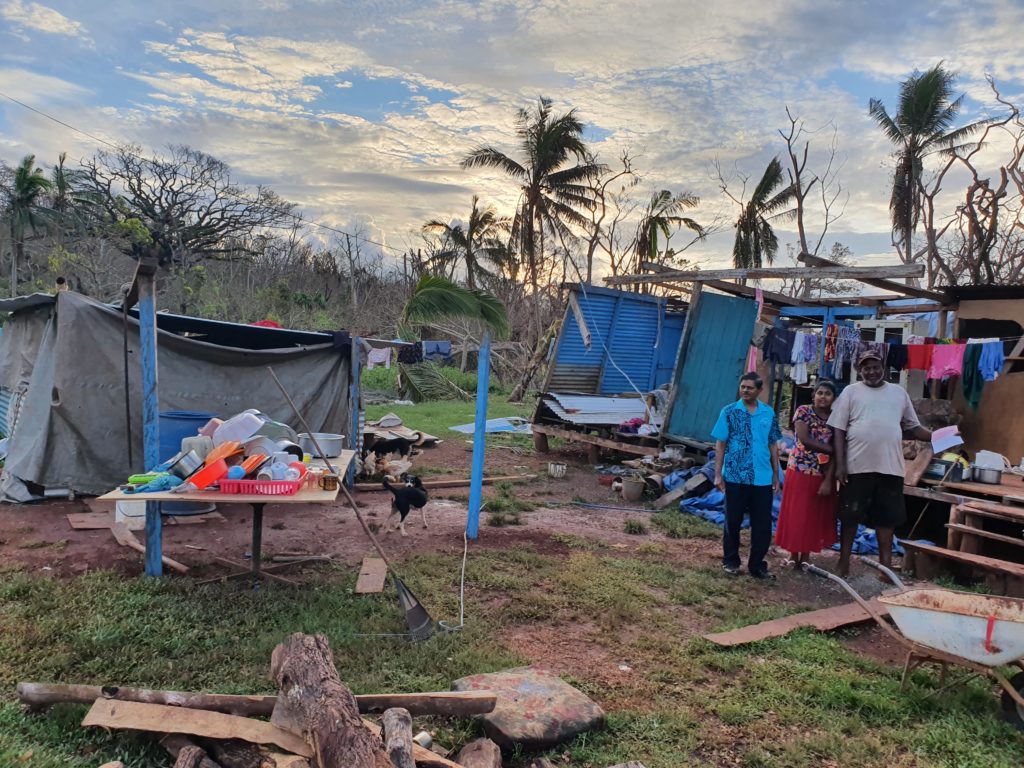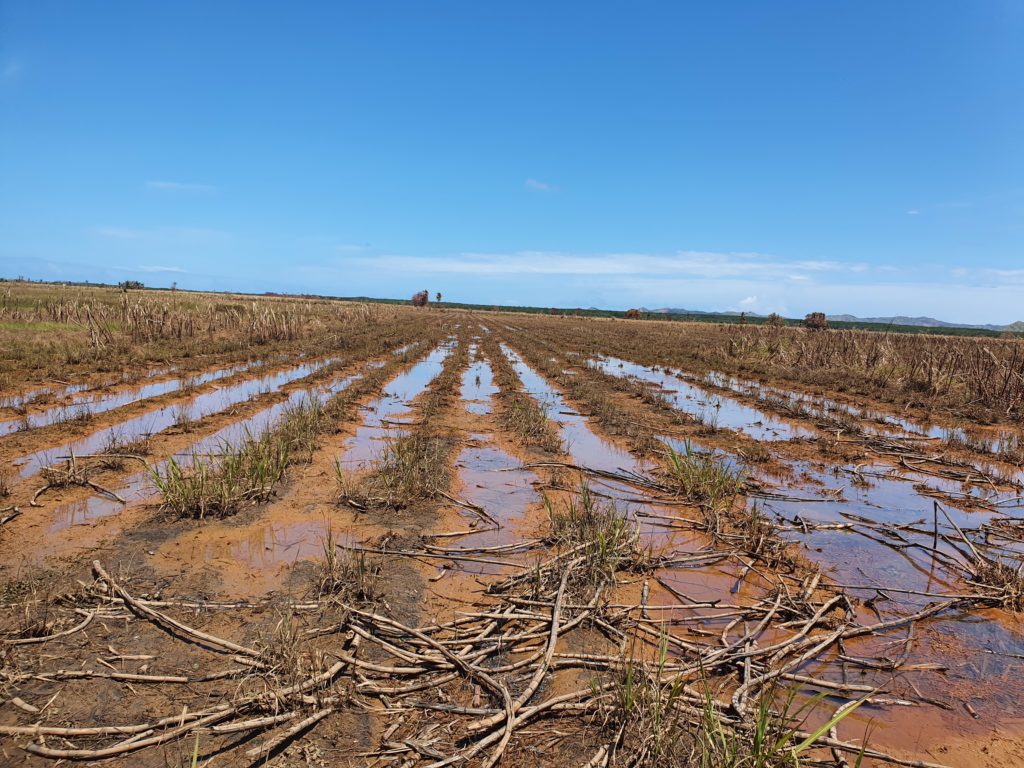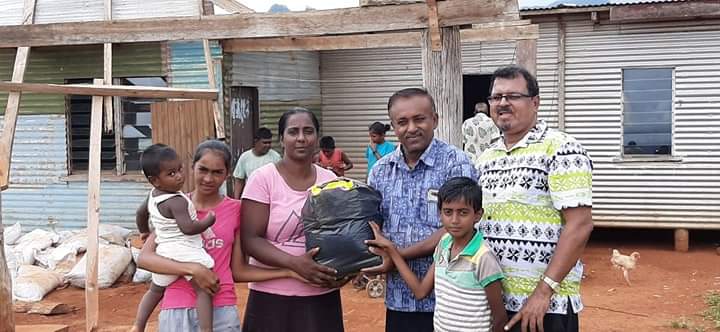Yasa Cyclone impact in Fiji

“It is evident that almost 100% of households have been affected by complete damage to food crops and 90% of sugarcane crops have been severely damaged. There is no long-term food security for all those impacted by the cyclone”Lakhan Kumar, Executive Manager of Fairtrade certified Labasa Cane Producer Association, Fiji
In mid-December 2020, the Pacific island of Fiji was hit by category five Tropical Cyclone Yasa, the strongest on record since Tropical Cyclone Winston which devastated the region in 2016. Cyclone Yasa ripped across Fiji’s second largest island, Vanua Levu, where four people were killed, infrastructure was destroyed, countless homes were lost and essential livelihood resources such as food gardens and sugarcane crops were decimated.
Initial reports from Labasa Cane Producers Association highlight that strong winds and heavy rains have destroyed homes, schools, and that the entire sugarcane belt across Vanua Levu has been impacted. They estimate that 100% of households have lost access to food crops and up to 90% of sugarcane crops have been severely damaged.
Coastal and low-lying areas were particularly affected, with storm surges destroying sugarcane fields and ongoing sea water intrusion continuing to cause damage to crops. At the household level, reports indicate that up to 50% of households have either lost or experienced extensive damage to their homes. 72 roads were closed, and many affected households had their access to food, water, communications, and electricity supply severely disrupted. Thousands of people have been relocated to evacuation centers.
Yasa Cyclone: a consequence of climate change

The Pacific contributes less than 1% of Greenhouse Gas Emissions but as a result of climate change, severe Tropical Cyclones, like Yasa, are becoming increasingly more powerful and more common across the region.
Those parts of the world that contribute the least to causes of climate change, should not be left to endure impacts alone.
To help ease a small part of the burden, on behalf of Labasa Cane Producers Association, Fairtrade Australia and New Zealand is seeking financial assistance to support Fiji’s Fairtrade sugarcane gain access to vital resources after the devastating impacts of Cyclone Yasa.
Financial support needed to aid Fiji’s Fairtrade sugarcane farmers

Fiji has long experienced the devastating impacts of major cyclones which hinder development efforts and slow progress towards the Sustainable Development Goals.
Climate change will only make this situation worse. Before Tropical Cyclone Yasa hit Fiji, Fairtrade sugarcane farmers were already facing challenges brought on by COVID-19, changes to international trade agreements and a resulting decline in Fairtrade sales.
Pressure from climate change and increased instances of cyclones are adding to the burden facing sugarcane farmers, further exacerbating their precarious and limited livelihood options.
Labasa Cane Producer Association (LCPA) has been supporting Fairtrade sugarcane farmers across Vanua Levu since 2010. To assist sugarcane farmers, farm workers and their families in the aftermath of the Tropical Cyclone Yasa. Labasa Cane Producer Association (LCPA) is currently seeking urgent financial assistance to help distribute emergency food portions and medical supplies to 4,000 households (3,500 family members and 500 other households from Fairtrade communities). LCPA have estimated a need of 160,000 Euros as a first step to support the Fairtrade farmers in urgent assistance.
LCPA is currently in discussion with the Ministry of Agriculture to distribute vegetable seeds in the cane producing communities for family food security and hopes in partnership with the Ministry for further focus in this area to enhance subsistence farming.
The Ministry of Sugar is also planning for a farm assistance package to revamp sugar cane farming, which has not been revealed yet.
LCPA has already started to provide assistance to their members and communities thanks to a partnership with a Fijian local organisation and their Fairtrade Premium (they are planning to use around 20,000 Euros).
However, the needs are huge and LCPA is requesting further support.
If you are willing to contribute financially to the assistance of Fairtrade Fijian sugar farmers, please
contact Sarah Lagente at Fairtrade ANZ – sarah@fairtrade.org.nz.
A detailed report will be provided to those who contribute.
About LCPA – a Fairtrade Producer Organisation
Founded in 2010, Labasa Cane Producers Association (LCPA) is located on the western end of the island of Vanua Levu, in Fiji. In 2011, LCPA was the first of Fiji’s three cane producer associations to receive their Fairtrade certification.
The association’s goal is “to deliver sustainable livelihoods and development opportunities to poor cane producers, their families and the wider community”. LCPA is a second-grade organisation with 432 harvesting groups known as gangs, which are divided into ten sectors located across the Seaqaqa and Labasa districts in the Northern Division.
It is estimated that 20,000 people were benefitting from the relationship between Fairtrade and LCPA.

